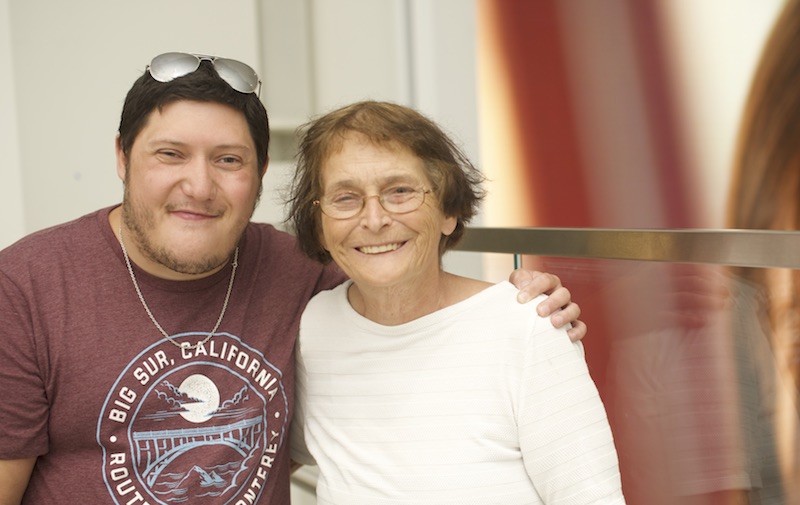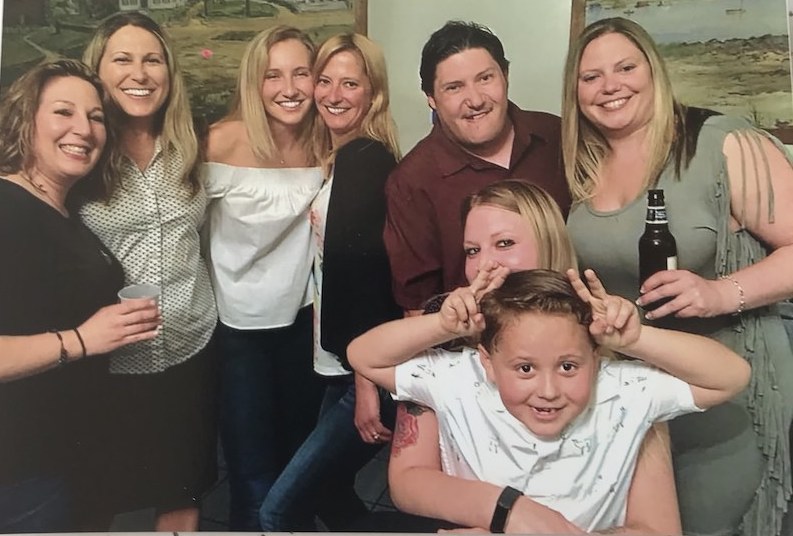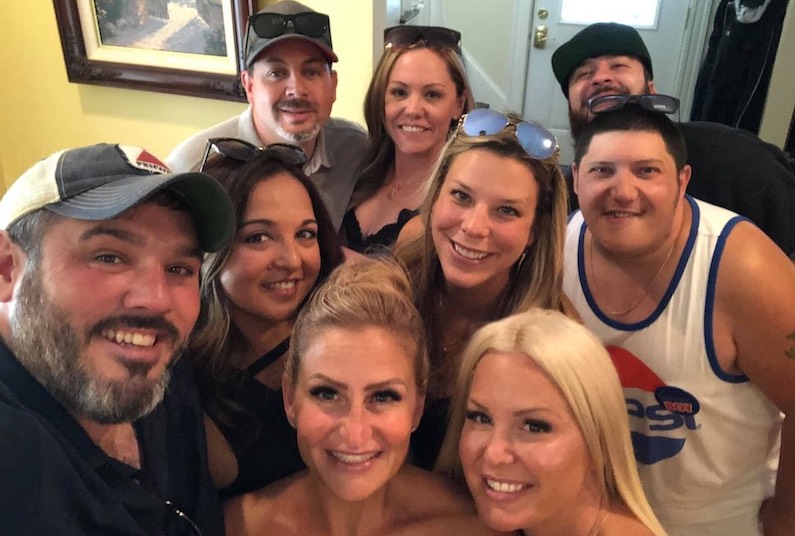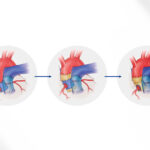After beating the odds, Joey dreams of Hollywood

Joey Manzo’s biggest dream is to travel to Hollywood to meet Ellen DeGeneres. Given how many dreams he’s already made a reality, it’s likely one day he’ll make that happen too.
DiGeorge syndrome, also called 22q11.2 deletion syndrome, is a genetic condition caused by missing a part of chromosome 22. It can cause a range of medical problems that include heart defects, cleft palate, speech or feeding problems, difficulty fighting infections, low calcium levels, kidney problems, learning or behavioral issues, and facial differences.
That’s because when someone tells Joey he can’t do something, he just digs in and tries harder. Born with DiGeorge syndrome, also known as 22q11.2 deletion syndrome, he’s had to work harder than most people to accomplish his goals, but that hasn’t stopped him.
“When he was born, the doctors told us he wouldn’t live past 19,” says his mom, Kathy.
“Well, I’ve beat those odds,” Joey says with a smile. Now 32, he owns his own home, has a full-time job at Goodwill, and loves to travel.
Living life, moving forward
A bit of an adventure seeker, Joey doesn’t let his medical condition keep him from living life to the fullest. He’s has taken a solo trip to Cancun, gone parasailing, and recently jumped out of a plane.
“You can’t let fear take over your life,” he says. “When you have like a disease like DiGeorge, you just gotta move forward and do what you want to do, because you never know. Like when people tell me, ‘Don’t go on that rollercoaster with your heart condition.’ You know what I do? I go on the rollercoaster.”
A lifelong relationship with the Heart Center
Referred to Boston Children’s Hospital when he was 4, Joey has been a patient of the Heart Center most of his life.
He’s been seeing his cardiologist in the Boston Adult Congenital Heart (BACH) Program, Dr. Michelle Gurvitz, since he was in his 20s. “I’ve really liked all the heart doctors I’ve had here, but Dr. Gurvitz is my favorite,” says Joey.
Born with three holes in his heart, Joey has had several heart surgeries over the years. And because he was born without a spleen — part of his DiGeorge syndrome — he’s prone to infection, and has been hospitalized many times over the years

“We’ve spent a lot of time at Boston Children’s,” says his mom. “But he’s doing better now.” These days, he typically only sees Dr. Gurvitz for a checkup once or twice a year. “If I have any symptoms, I call her right away,” he says. “I’m glad I found the right hospital. Because if something happens, I know I can go right in and everyone knows me.”
Strong family ties
Joey comes from a large, close-knit family, with four doting older sisters who are all very supportive, and lots of nieces and nephews. But he has a special relationship with his sister, April.
“I love all my sisters the same, but April is one of my biggest supporters, because she’s been helping me handle my finances since I was 18 and she puts up with me all the time,” he says. “She deserves a plaque or something for everything she does for me.”
Between his mother, his sisters, and his network of close friends, Joey always has someone to rely on if he needs help, including getting to the hospital for an appointment or emergency visit. “I have a great support system, and I know I’m very lucky because lot of people with special needs don’t have that.”

Joey’s advice to parents of kids with complex medical conditions and special needs? “Let them have fun and don’t make them live in a bubble. I have an amazing life now, and it’s because my family has always supported me, but they have also let me live my own life and do the things I want to do.”
Next stop, Hollywood, to make his biggest dreams come true.
Learn more about the BACH Program.
Related Posts :
-

First-of-its-kind pressurization test could improve Ross procedure outcomes
The Ross procedure is a preferred surgery to treat severe aortic valve disease. The procedure replaces the failing valve ...
-

Four things you should know about MAPCAs treatment
As the first grandchild in her family, Hannah Homan is in demand for frequent visits. She was also the focus ...
-

Treating MAPCAs with unifocalization surgery and cardiology care
Children born with a rare form of tetralogy of Fallot (ToF) face a challenging type of congenital heart ...
-

After surgeries to treat HLHS, Carter is healthy and happy at home in Florida
Carter Miller loves action. The 4-year-old Florida resident enjoys riding on golf carts and flying high on swing sets. ...





